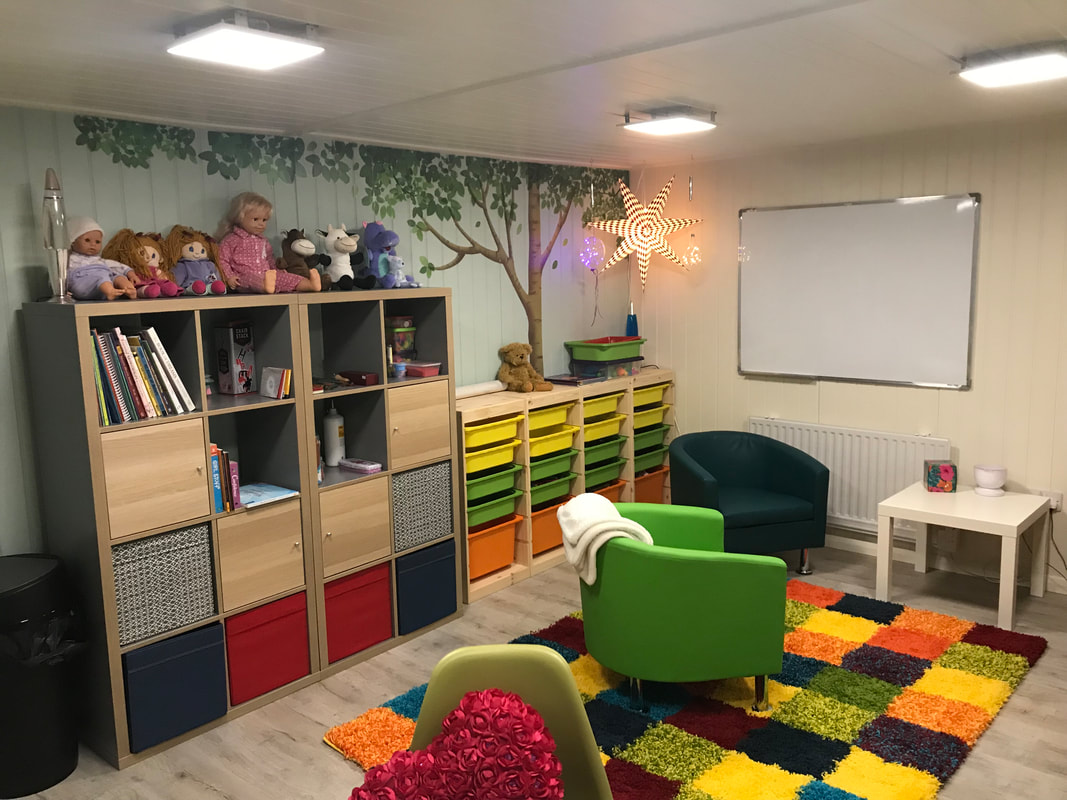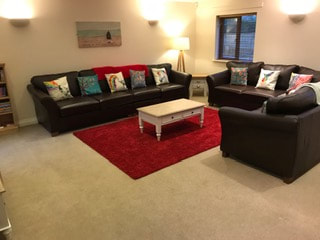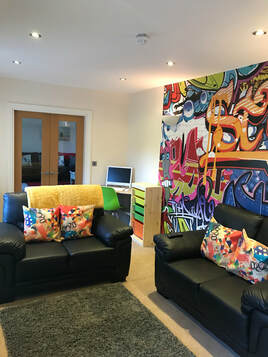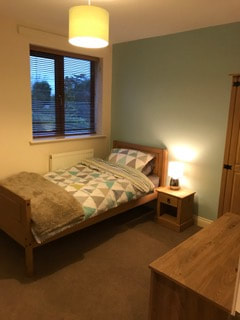Welcome to Abbey Green Therapeutic Children's Services
|
At Abbey Green Therapeutic Children’s Services, we understand that the capacity to develop lasting and meaningful relationships develops in accordance with the opportunity of the young person, to form secure attachments. Our homes offer a welcoming and nurturing environment. We encourage our young people to feel a sense of belonging in their home and support them to personalise their bedrooms both decoratively and with their personal effects. We want our homes to feel like a safe and secure place for children to live, where they can begin to feel a renewed sense of safety and emotional wellbeing and develop relationships with the support of our Carers. The model that underpins all of our work is Therapeutic Parenting, an attachment focused approach that reflects the importance of therapeutic relationships. Our Carers are trained in attachment informed approaches, based on the PACE parenting (Playfulness, Acceptance, Curiosity, Empathy) approach of Dr Dan Hughes and Dr Kim S Golding. This training enables our Care Team to deliver therapeutically informed care. Our Model of Care/Treatment is based on the premise that the emotional development of children and young people is dependent upon and highly influenced by the nature of the carer-child relationship. For successful intervention, the model suggests a strong focus on parenting principles, that facilitate security of attachments and which incorporate an attitude based on trust and reciprocity, which serves as a template for all future emotional relationships. It allows them to explore their environment with feelings of safety and security, which leads to healthy cognitive and social development. Children and Young People develop the ability to self-regulate, which ensures effective management of their impulses and emotions, thereby reducing unsociable and harmful behaviours. A secure attachment with our carers, acting as therapeutic parents enables Children and Young People to also gain empowering feelings of self-worth and develop a better balance between dependence and autonomy. We believe furthermore, that it enables their pro social moral framework to be developed, where empathy and compassion towards others is developed. By working closely with the Young Person, this also provides a defence, resourcefulness and resilience against current and future stress and trauma. At Abbey Green Therapeutic Children’s Services we believe that relationships and shared responsibility are central to all organisations and that the overall social environment is critical to the effectiveness of the service. We embrace a reflective and nurturing space, giving children the chance to consider their actions and learn effectively. The service provides a therapeutically planned environment, with a tailored package of care and therapy. We offer in house therapy with our Child Psychotherapists such as Talking, Humanistic Therapy, Integrative Therapy, Dance and Movement Therapy and Music Therapy to meet the individual child’s needs. We have the benefit of bringing in other therapeutic services when required such as Psychologists. Children and young people may have individual psychotherapy in addition to the therapeutic key working that is provided weekly. Great attention is paid to diet and nutrition in the home. Food is varied and fresh with significant attention to children’s preferences and cultural diversity; home environments are comfortable and high quality; the daily regime is predictable, nurturing and supportive of all the needs of growing children and young people. A restorative approach is used at Abbey Green Therapeutic Child Care, this shifts the emphasis from managing and responding to conflict and anti-social behaviour, to the building, nurturing, and repairing of relationships. Everyone in the therapeutic community supports each other in taking responsibility for the impact that behaviour has on those around them, and putting things right when they go wrong. A restorative approach is critical in dealing with negative behaviour within the home in order to prevent young people compounding their difficulties. The focus is on the four R’s of Restorative Justice: repair, restore, reconcile and reintegrate the wrongdoers and wounded to each other and to their shared community. All Carers are trained in the use of Therapeutic Crisis Intervention (TCI) techniques. Therapeutic Crisis Intervention is a crisis management protocol developed by Cornell University. The purpose of the TCI protocol is to provide a crisis prevention and intervention model for residential child care facilities, which will assist us in preventing crises from occurring, in deescalating potential crises, in effectively managing acute crisis phases, in reducing potential and actual injury to children and staff, in learning constructive ways to handle stressful situations and in developing a learning circle within the organisation. Group meetings will be used for team building and problem solving and enable a group to get to know each other and develop mutual respect, trust and concern. A Family Group Conference is useful when a plan is needed to provide support to a young person, or their family in making changes. This process will be preceded by a restorative element where appropriate. Breaking the cycle Traumatised children learn with us to appreciate what a warm, loving and ordinary ‘family’ life is like. The cycle of trauma is broken, enabling a return to mainstream family life, either in birth or foster family, or on to independent living at 18+. We want to ensure that our young people develop the skills they will need in the future, in order to be able to live independently, to seek employment or go on to further education. The physical environment, the interactions of Carers and Young People, and the way each day is planned - are considered to be part of the therapeutic process. These three components are essential when working therapeutically with looked after children - many of whom have had very negative early life experiences - and who require a carefully managed living environment to acquire the social and behavioural skills to help them adjust back to safer and healthier approaches to living. |










